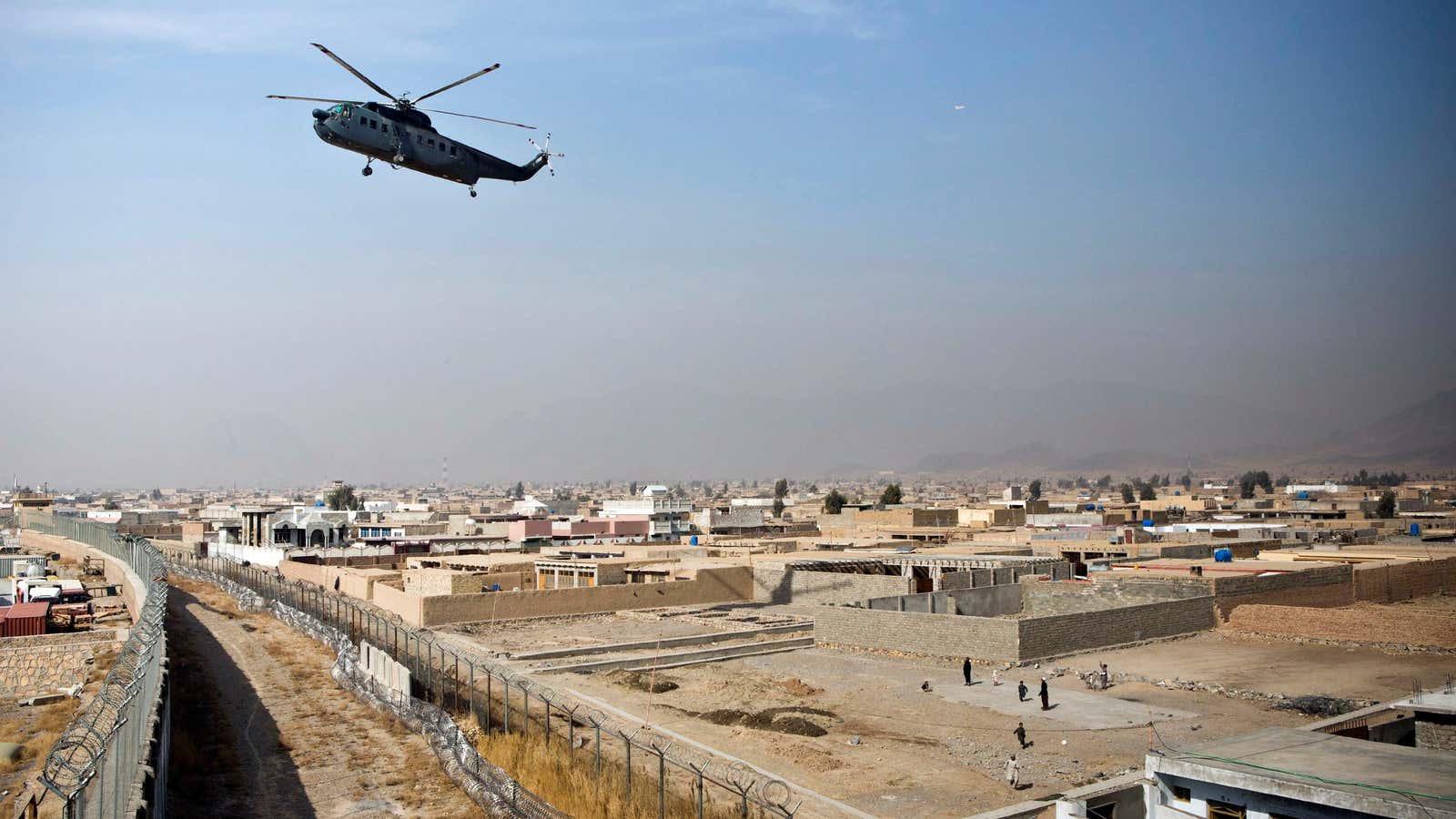Nearly 20 years since the 9/11 terror attack that launched the US’ “forever war,” American troops pulled out of Afghanistan, leaving behind a vacuum that the Taliban is now filling.
Every US president since George W. Bush has pledged to end the war in Afghanistan—but none of them did. In April, Joe Biden said that US troops would be out of the country by the 20th anniversary of 9/11, with their mission accomplished: “get the terrorists who attacked us on 9/11, deliver justice to Osama Bin Laden, and degrade the terrorist threat to keep Afghanistan from becoming a base from which attacks could be continued against the [US].”
Over the following months, US troops did leave, at times under the cover of darkness, leaving weapons and local partners behind. Now, the Taliban has entered Kabul, Afghanistan’s capital. On Sunday, President Ashraf Ghani fled the country, as did diplomats and many civilians. The Taliban now has control of every major city in the country.
Many allies have been critical of the US approach to ending the war in Afghanistan, as have some of the governments that will be most relevant to the future of the country. Below is a partial list of those international reactions:
China
China shares a border with Afghanistan and invests in the country’s mining and energy sectors through projects like the Mes Aynak copper mine. The Chinese government invited a Taliban delegation to Beijing in July.
In May, following a bombing near a girls’ school in Kabul that killed dozens of children, China’s Foreign Ministry partly blamed Washington. “It needs to be pointed out that the recent abrupt US announcement of complete withdrawal of forces from Afghanistan has led to a succession of explosive attacks throughout the country, worsening the security situation, and threatening peace and stability, as well as people’s life and safety,” spokesperson Hua Chunying said at the time.
Russia
The Soviet Union invaded Afghanistan in 1979 to support the communist government against the US-backed mujahideen during the Afghan War. It withdrew its troops in 1989, shortly before the collapse of the USSR.
Today, Afghanistan is still a strategic location for Russia, which has a military base in neighboring Tajikistan.
During the summit between Biden and Russian president Vladimir Putin in Geneva in June, Russia opposed the idea of redeploying US troops from Afghanistan to neighboring central Asian states, which are in its backyard. “We told the Americans in a direct and straightforward way that it would change a lot of things not only in our perceptions of what’s going on in that important region, but also in our relations with the United States,” deputy foreign minister Sergei Ryabkov said.
Turkey
In recent years, Turkey has taken in the largest number of refugees of any country in the world—most of them coming from Syria and Afghanistan. Currently, estimates suggest that 500 to 2,000 Afghans are arriving in Turkey every day.
Earlier this month, the State Department announced that some Afghans fleeing the Taliban could apply for asylum in the US after waiting 12 to 14 months in a third country, and an unnamed official mentioned a possible route from Afghanistan to Turkey. The Turkish Foreign Ministry called it an “irresponsible decision.”
“If the United States wants to take these people to its country, it is possible to transfer them directly to their country by planes. No one should expect the Turkish nation to bear the burden of the migration crises experienced as a result of the decisions of third countries in our region.”
